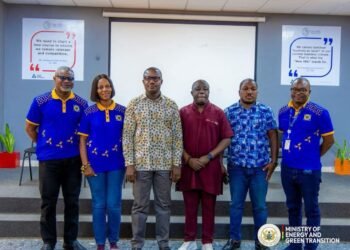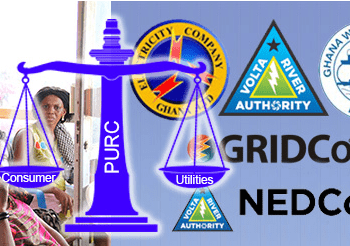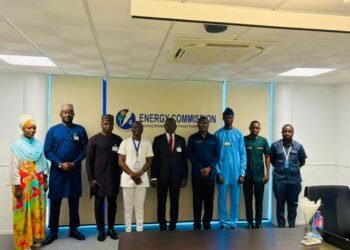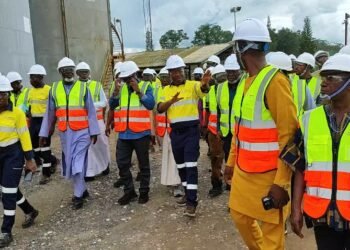The Ministry of Lands and Natural Resources has embarked on a comprehensive strategy aimed at addressing the inequalities and environmental degradation caused by the activities of illegal mining otherwise known as “galamsey”.
In a significant effort to combat the rampant illegal mining that has plagued the country’s natural resources, the Lands and Natural Resources ministry through the Director of Communications, Ms. Mawusi Ama Mawuenyefia has pledged to keep the public posted as far as the fight against the menace is concerned.
She also added that with focus on transparency and stakeholder engagement, the ministry is determined to formalize the mining sector and foster sustainable livelihoods for those impacted.
“We are taking lessons from the past; we are taking inspirations from best practices.”
Ms. Mawusi Ama Mawuenyefi, Director of Communications
This vow, highlights the ministry’s readiness for a well-rounded approach. The strategy not only emphasizes the importance of regulation and enforcement but also aims to provide alternatives livelihoods to those engaged in illegal mining activities.
By promoting legal avenues for mining, the government seeks to create a sustainable framework that benefits all parties involved including the residents of these galamsey communities.
“We are also looking at making changes to our regulations, the regulations that define the mining industry. We will keep providing you with updates, we will keep being transparent with you, the people of Ghana”
Ms. Mawusi Ama Mawuenyefi, Director of Communications
Illegal mining has been a longstanding issue in Ghana, contributing to significant environmental degradation, loss of biodiversity, health challenges and pollution of water bodies.
Over the years, illegal miners have exploited the nation’s rich mineral resources such as gold without adhering to the necessary regulations, resulting to the destruction of farmlands and forests and the general ecological landscape.
The situation escalated in recent years, prompting public outcry and governmental intervention.
In response to this crisis, the government has intensified its efforts to drastically eliminate this illegal mining through various initiatives.
The establishment of the National Anti-Illegal Mining Operations Secretariat (NAIMOS) was a pivotal development, serving as a central command for coordinating anti-illegal mining operations.
The ministry’s commitment to this cause is evident as Ms. Mawusi stated, “Government is unwavering in its commitment to this.” Reinforcing their dedication to tackling this pressing issue head-on.
Developments and Initiatives

As part of its ongoing efforts, the Ministry of Lands and Natural Resources has initiated stakeholder engagement sessions to discuss corrective actions needed in the mining sector.
The Director of Communications affirmed that recently, the British High Commission hosted a forum where policymakers, medical experts, and government officials convened to address the challenges posed by illegal mining.
She also added that the ministry has also implemented the “Blue Water Guards”, a task force focused on protecting water bodies from illegal mining activities.
“Last week we saw the figures, we saw the work that they are doing, and they are still on. And as we go on, we will keep updating you on the progress that they are making.”
Ms. Mawusi Ama Mawuenyefi, Director of Communications
According to her, these guards have been active in various regions, uncovering illegal sites and dismantling makeshift mining operations.
In addition to law enforcement, the ministry is also keen on providing sustainable alternatives to those involved in illegal mining.
Policy Review and Involvement

Looking forward, the ministry recognizes the relevance of continuous policy review to strengthen regulations governing the mining industry.
The aim is to create a legal framework that incentivizes formal mining practices over illegal ones.
The ministry acknowledged the need for an adaptable regulatory environment that encourages compliance.
The ministry assured that it is actively engaging local communities to ensure their voices are heard in the decision-making process.
By fostering a collaborative environment, the government hopes to garner support from citizens who are directly affected by illegal mining.
Involving the community ensures that initiatives are not only effective but also culturally relevant and sustainable.
Collective Responsibility
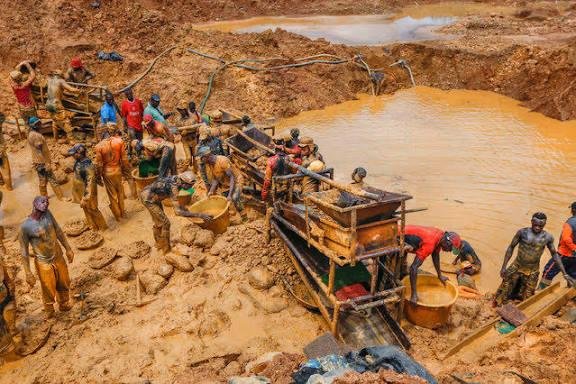
The fight against illegal mining is a multifaceted challenge that needs the cooperation of various stakeholders, including government agencies, local communities, and civil society.
As the Ministry of Lands and Natural Resources continues to implement its strategy, it remains crucial for all Ghanaians to participate in this fight against illegal mining.
“Your responsibility as the media is to help us put out the right narratives,” Ms. Mawusi admonished.
Through transparency, stakeholder engagement, and a commitment to sustainable practices, the nation can work towards a future where its natural resources are protected, and the livelihoods of its citizens are secured.
The ministry’s updates serve as a reminder that the journey is unabatedly ongoing, and collective efforts are essential in overcoming the challenges posed by illegal mining.
With unwavering determination and community involvement, the government can pave the way for a more sustainable mining industry that respects both people and the environment.
READ ALSO: We Have Turned the Corner: More Sterilization and Credibility Needed – BOG Governor




